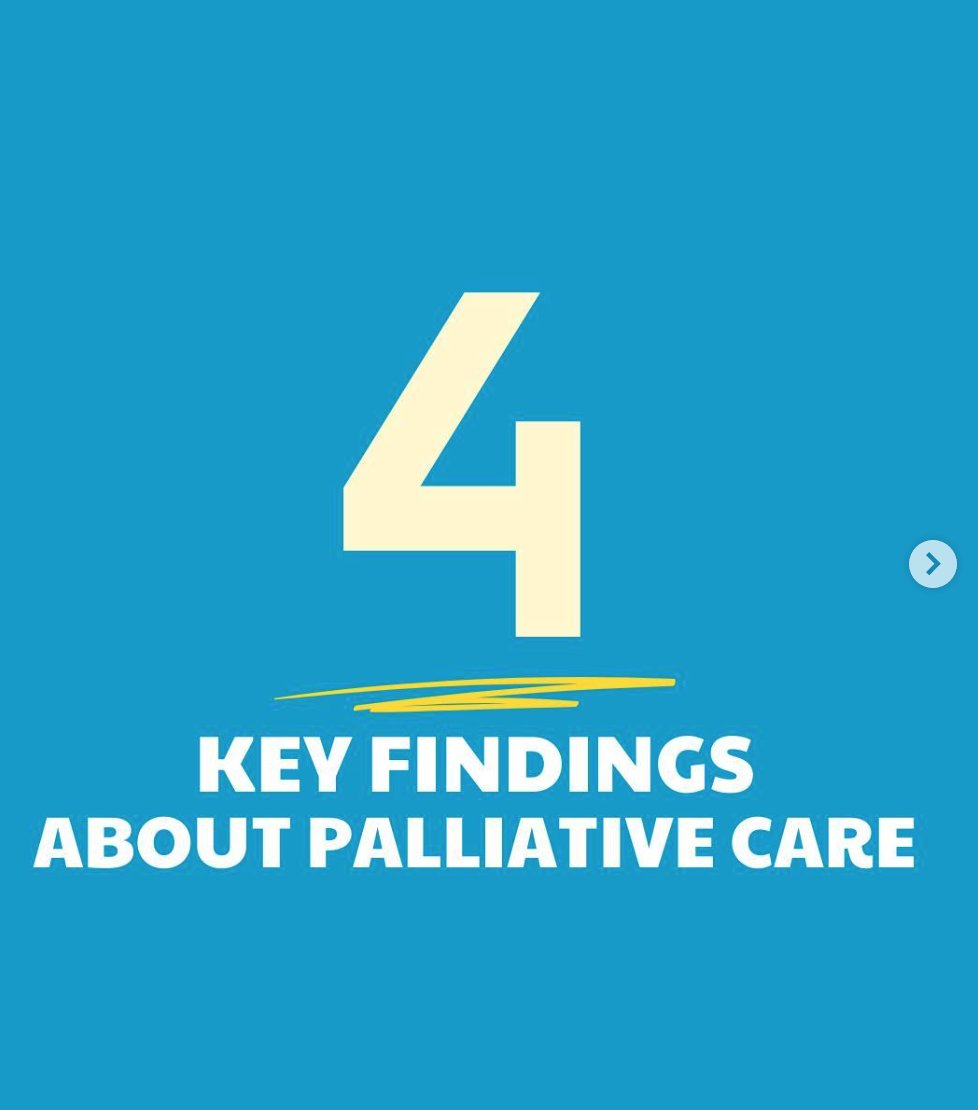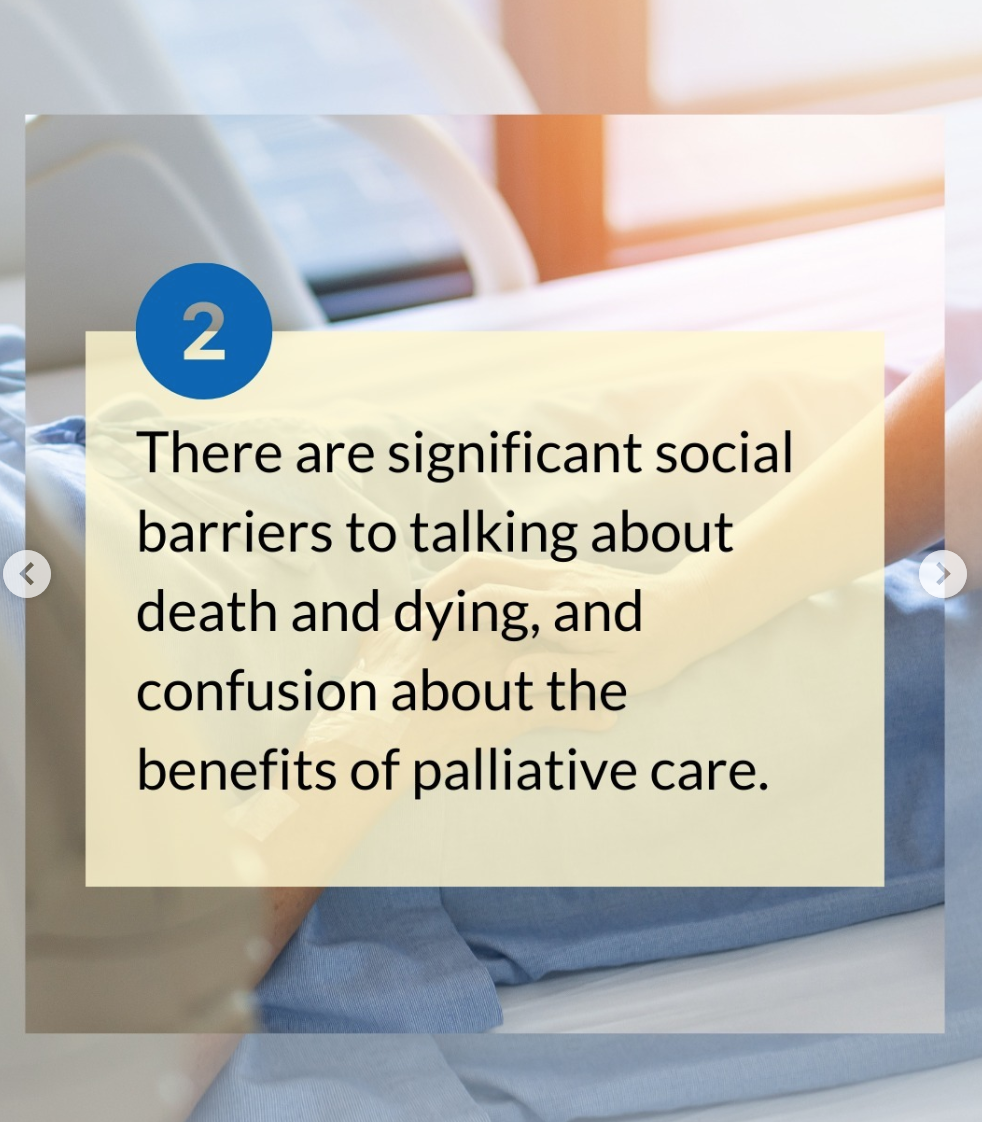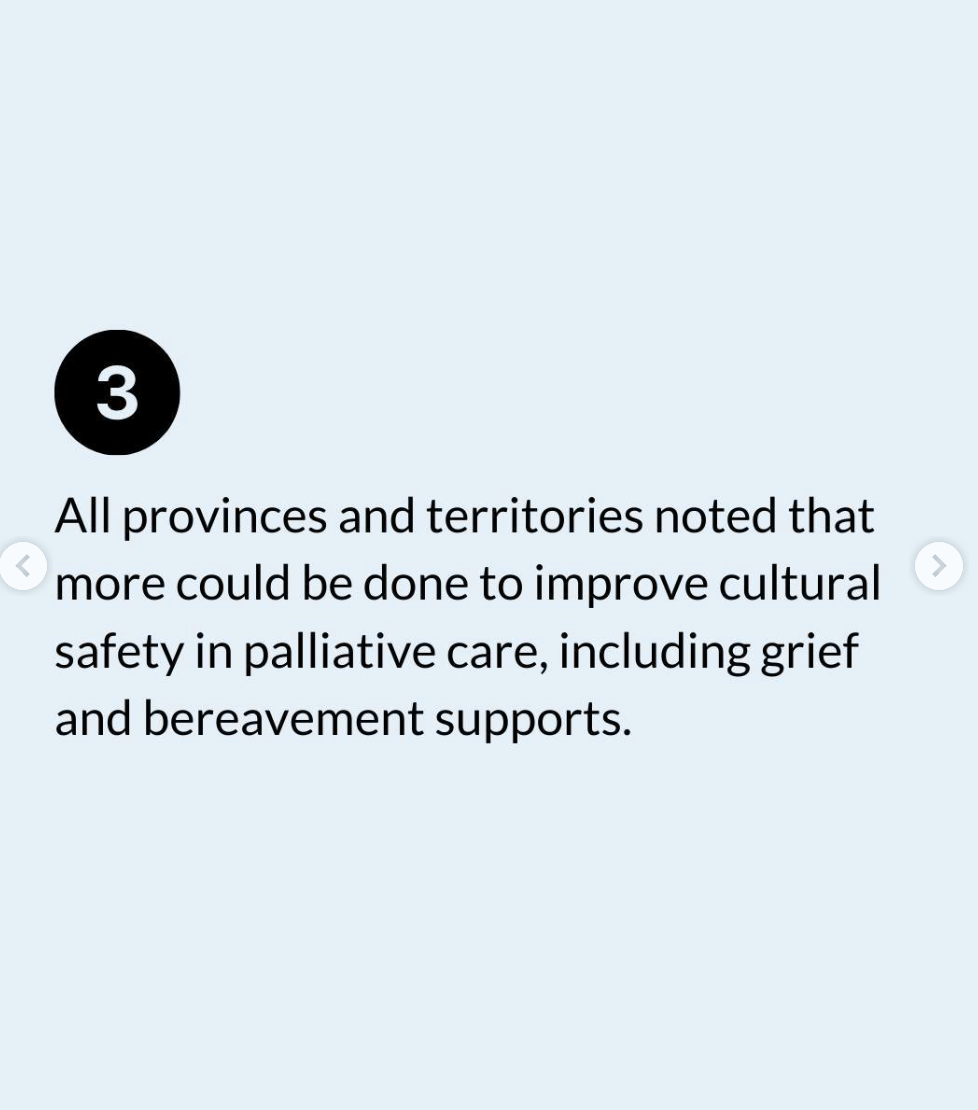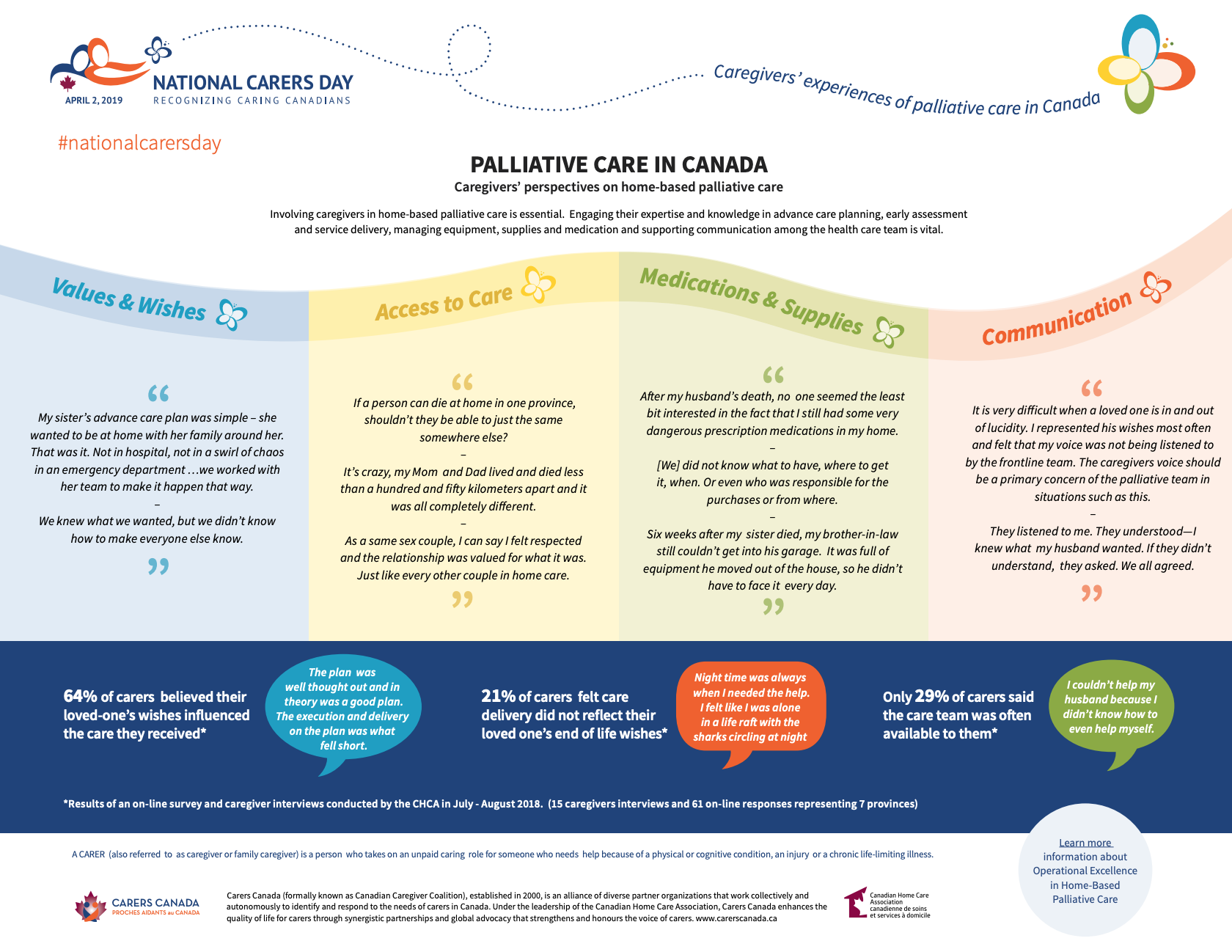“We believe that it takes a society to create better treatments, better care, and better support for people living in Canada. Part of making further advancements is offering recommendations to federal and provincial governments that can make supports for people with cancer more accessible, like palliative care.” Source: CCS
The Canadian Cancer Society’s (CCS) report analyzing palliative care across Canada will direct advocacy and support initiatives in the coming years. This report highlights 4 key findings about palliative care:
1. Canada still lacks the capacity to consistently deliver palliative care in communities, particularly in hospice.
2. There are significant social barriers to talking about death and dying, and confusion about the benefits of palliative care.
3. All provinces and territories noted that more could be done to improve cultural safety in palliative care, including grief and bereavement supports.
4. Access to palliative care would be enhanced with additional training of healthcare professionals in more healthcare settings.
To ensure that palliative care reaches those who require it, there needs to be a shift in the awareness and understanding of services for everyone, including providers, caregivers, and patients. There also needs to be an increased understanding of the landscape of palliative care services across Canada. The palliative care needs of a population cannot be met by palliative care specialists alone.
Source: 4 key findings about palliative care. CCS
To read more, visit: https://cancer.ca/en/about-us/stories/2024/4-key-findings-about-palliative-care












